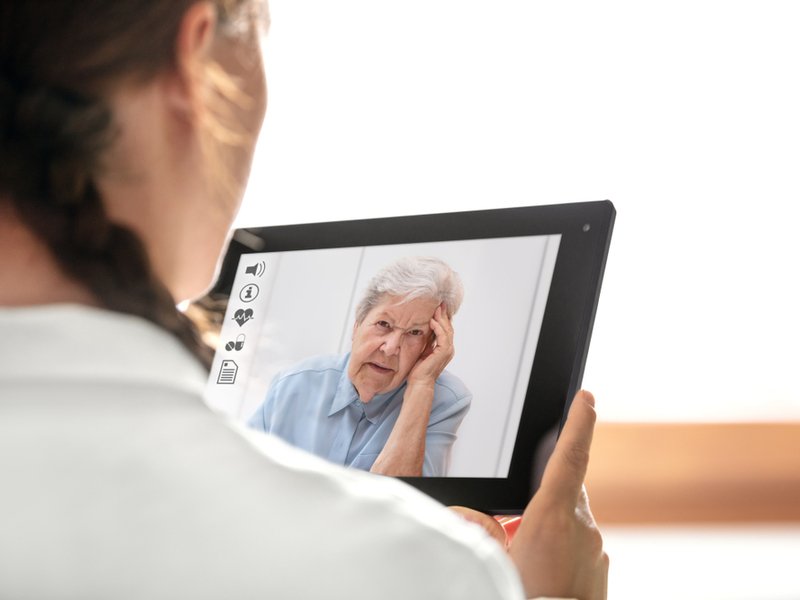Telepsychiatry services playing a vital role
September 09, 2020 | Wednesday | News
Clear guidelines and recommendations should cover ethical and safe use of secure servers
Image credit- shutterstock.com
Man is a Social Animal. We are wired up to stay connected physically. In this pandemic, most of us are not able to get the daily share of person to person interaction.
Virtual world is not able to establish the connection and provide the contentment which we enjoyed before. Staying at home has been liberating for many in the initial phase, but with time it has become confining. There may be uncalled interruptions by the family members staying under the same roof over longer period. Due to this unexpected lifestyle changes and uncertainties, the majority of us have experienced unpleasant emotions like fear, frustration, irritability, hyper-arousal, and insomnia.
Adapting to this “New Normal” life along with managing the fear of contracting the virus and worrying about the people close to us who are vulnerable, are challenging for all of us. With this there has been a surge of mental health issues during this pandemic.
The global pandemic continues to spread posing new challenges to the health system and its resources. Precautionary measures like travel restrictions and social distancing has posed difficulties to the health seekers. People sometimes fail to get timely attention for their health needs. The change has created difficulties even to people with mental health issues.
In the wake of the global health crisis, one of the first measures universally adopted was teleconsultations for the minor health ailments. Definitely, this came as a boon for bridging the gap of the spiking cases and the care required. In mental health issues since physical examination is less crucial compared to other health issues ‘Telepsychiatry’ became the best suited solution to both the health providers and the stakeholders.
The surge in teleconsultations lead to the issual of the long-pending telemedicine guidelines by the ministry of health and family welfare (MoHFW), in collaboration with NITI Aayog and Board of Governors (BoG) Medical Council of India (MCI). The Government of India further released the updated telemedicine guidelines on March 25, 2020, which legalised the practice of teleconsultation and telemedicine in India. According to the latest guidelines, patients can now consult with doctors over chat, audio or video for diagnosis.
The fact that mental health services are more concentrated in the urban areas and the existing ‘Mental health Gap’ was known to us way before the pandemic. Now, Covid-19 outbreak has potentially opened the door to adoption of digital health services even after the pandemic. Physical consultations are definitely going to return. Also, the present change has allowed adaptation of the technology and can be of help to provide mental health services to the underserved areas in India. There is a surge in the usage of smart-phones and digitally literate population in India. Telepsychiatry services are going to play a vital role and can benefit Indians, particularly the rural India.
The government has allowed relaxation in the existing rules for tele-consultations. There are more number of start-ups, entrepreneurs, professional associations and academic institutions providing tele-psychiatry services India.
As the tele-psychiatry is gaining momentum there needs to be more transparency regarding legal and ethical matters, privacy and confidentiality, and also data security. Psychiatry as a discipline relies on human interaction and observation of human behaviour. Through Telepsychiatry we should try and make it possible to attain confidence between the providers and clients.
With all the hope and hype it has created telepsychiatry, it still holds the potential to solve the enormous and entwined problems of underdiagnosing and undertreating people with mental illness. We should also be able to make-up for the lack of trained manpower at rural and peripheral places. We should not underestimate the negative consequences of such unsupervised services.
Clear guidelines and recommendations should cover ethical and safe use of secure servers. Encrypted software would be necessary. With the help of technology it is not too late to make a difference to improve the quality of care in these challenging and testing times.
Dr Kreethishree Somanna, Consultant psychiatrist, KMC Hospital, Mangalore









